Owning an elevator can change the lives of many people. Elevators can help relieve the stress of carrying items up and down stairs, assist people with mobility issues, and help seniors stay in their homes when they develop problems such as arthritis. Whether for domestic or commercial use, elevators offer many benefits to modern life. However, many people often think that installing an elevator is expensive and choose to give up, which is biased. After the development of modern elevators, their costs have been controlled within the acceptable range of ordinary families. Read this passage, show you how much does an elevator cost for a 2 story building.
The cost of installing an elevator varies mostly depending on how tall your property is and how many floors need to be serviced by the unit. If you have one in a three-story home, it will cost more than the same model in a two-story house because more labor and parts are needed during the installation process. Generally speaking, the cost of adding an elevator to a two-story building ranges from $20,000 to $100,000. What’s more, the cost of installing an elevator goes up by about $10,000 on average for each additional story.
Taking traction elevators as an example, the installation costs of gearless traction elevators and gear traction elevators are also different:

Geared Traction Elevator
Geared traction elevators cost between $25,000 and $38,000. For operation, a gearbox is attached to the motor and a pulley system is used to raise and lower the cab. Geared traction models are slower than gearless traction models and have a maximum travel distance of 250 feet. A major advantage of gear traction elevators is the lower energy consumption levels of this type.
The average cost of a gearless traction elevator ranges from $29,000 to $55,000. Gearless traction systems work by moving along a track, with a counterweight system raising and lowering the elevator. They are one of the best options for existing homes rather than new construction because they don't take up much space and don't require a pit or mechanical room. However, they require additional space on top of the elevator to store the mechanical parts responsible for moving the equipment. This type of elevator may not be available in most private residences, making it a first choice for commercial projects.
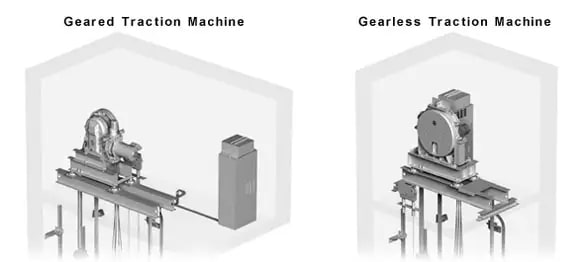
Traction elevators offer a compelling array of benefits that make them an indispensable choice for buildings with limited space. From their space-saving design and wide application scope to their elegant appearance and energy-efficient operation, these elevators embody innovation and functionality.
Delfar, as a seasoned manufacturer of elevator, we offer a diverse range of traction elevators designed to optimize initial investment, maintenance costs, installation space, and energy consumption. Our expertise lies in crafting tailored solutions that precisely align with your unique needs and specifications, without compromising on quality or functionality. With a wide selection of materials and accessories at your disposal, you have the flexibility to customize your elevator to suit your aesthetic preferences and operational requirements. Whether you're seeking vertical transportation solutions for low-rise structures or towering skyscrapers, our team has the knowledge and experience to deliver results you can rely on. Reach out to us today, and let us help you design traction elevators that elevate your space while meeting your every need.
Hydraulic Elevator
On average, a hydraulic type of elevator will cost $22,000 to $53,000. With a hydraulic system, you have a piston that moves inside a cylinder to power the elevator and control its motion. Since the entire power system for these models is inside the shaft, they do not need a separate mechanical or machine room. Plus, the controller is compact, easily fitting inside a little cabinet on the wall beside the unit. There are two hydraulic systems: holed and holeless. Holed systems need the cylinder to go down into the ground, so they require the construction of a pit, while holeless systems do not need a pit. Cables need replacement every five years to remain operational.
Chain-Driven Elevator
On average, a chain-driven unit costs $27,000 to $62,000. In chain-drive systems, a counterweight attached to a chain travels in the opposite direction of the elevator car. This requires the shaft to be much larger, although it does not need a separate motor room like the cable-driven system does, saving space. This elevator is more durable and longer-lasting, requiring less maintenance and fewer repairs. However, they are loud to operate, making them not suitable for most residential elevator projects.
Adding accessibility features to an existing commercial property is a significant investment for building owners. In addition to equipment costs, owners must also consider renovations and the potential time and money associated with them. Therefore, As a rough estimate, the cost for a basic commercial elevator suitable for a two-story building typically ranges from $75,000 to $150,000. However, this estimate can increase substantially based on various factors. It's important for building owners or developers to consult with elevator manufacturers or installation companies to obtain accurate cost estimates based on their specific requirements and circumstances. Additionally, considering the long-term benefits and return on investment of installing a commercial elevator, it's wise to prioritize quality and reliability over upfront costs.
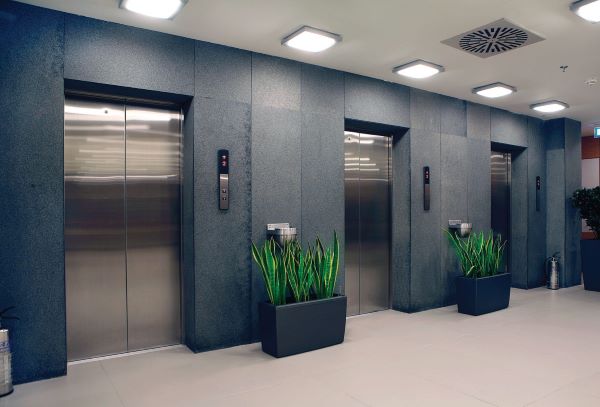
When considering the installation of an elevator in a two-story building, several factors come into play that influence the overall cost of the project.
One crucial aspect is the size and capacity of the elevator. Larger elevators capable of accommodating more passengers or transporting heavier loads typically incur higher costs due to the increased materials and engineering required.
Customization and additional features also contribute to the overall cost. Depending on the specific needs and preferences of the building owner, custom finishes, interior design elements, and advanced technological features may be added to the elevator, further elevating the total expense.
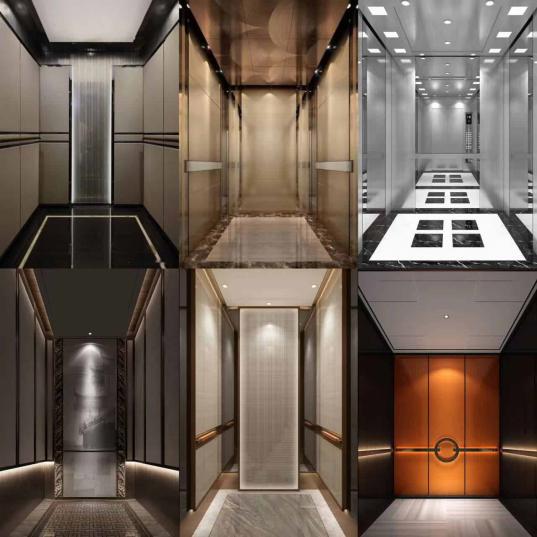
Installation and site costs encompass various expenses associated with preparing the building for the elevator installation. This includes structural modifications to accommodate the elevator shaft, electrical wiring, and any necessary permits or inspections. Site-specific challenges, such as accessibility issues or restrictions, can also impact installation costs.
Labor costs play a significant role in the overall expense of installing an elevator. Skilled technicians and construction workers are needed to handle the intricate tasks involved in elevator installation, from assembling the elevator components to ensuring proper alignment and functionality.
Maintenance and after-sales costs are ongoing expenses that must be factored into the overall cost of owning an elevator. Regular maintenance and servicing are essential for ensuring the elevator operates safely and efficiently over its lifespan. Additionally, warranties, emergency repair services, and spare parts availability may influence the overall cost of ownership.
Most elevator installation prices assume that you’re building in new construction. If you’re adding one to your existing home, you may need these services:
Price to hire an architect: $2,000-$9,300
Cost to build a wall: $1,000-$2,700
Price to repair carpentry framing: $500-$1,800
Cost to install a ceiling: $900-$2,400
Price to upgrade or replace an electrical panel: $500-$1,800
Cost to install electrical wiring: $500-$2,100
Price to hire a structural engineer: $350-$700
In the realm of vertical transportation, traction elevators stand out as a versatile solution, particularly for buildings with limited space. Their innovative design, coupled with a myriad of benefits, makes them an ideal choice for architects, builders, and homeowners alike. Let's delve into the multifaceted advantages of traction elevators, exploring how they address space constraints while offering much more.
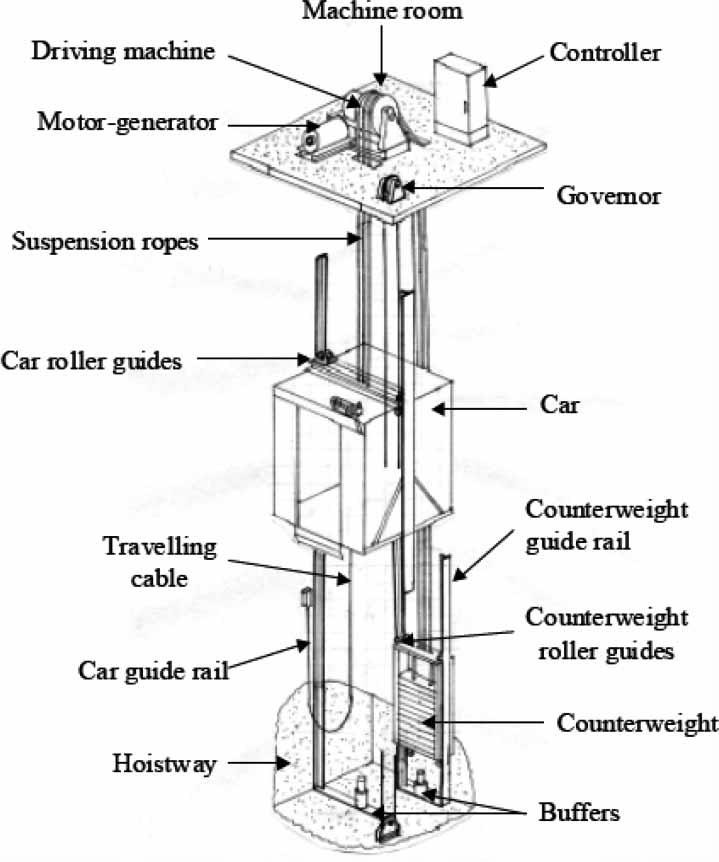
Traction elevators are engineered with a compact footprint, making them perfect for buildings where space is at a premium. Unlike traditional hydraulic elevators that require a dedicated machine room, traction elevators utilize overhead space for their machinery. This design minimizes the elevator's impact on the building's floor plan, allowing for more efficient use of available space. Whether it's a residential high-rise or a commercial office building, traction elevators offer a seamless integration without compromising on functionality.
One of the standout features of traction elevators is their adaptability to diverse architectural requirements. From low-rise structures to skyscrapers, these elevators can be customized to suit the unique needs of each building. Whether it's a residential complex, a shopping mall, or a hospital, traction elevators can be tailored in terms of capacity, speed, and design aesthetics. This versatility ensures that regardless of the building's purpose or size, a traction elevator can be seamlessly integrated to enhance vertical mobility.
Beyond their practical functionality, traction elevators also serve as a design statement, adding aesthetic value to the building. With customizable options ranging from sleek stainless steel cabins to glass enclosures, these elevators can complement any architectural style. Their elegant appearance not only enhances the visual appeal of the building but also creates a luxurious ambiance for passengers. Whether it's a modern urban dwelling or a classic heritage structure, a traction elevator can elevate the overall aesthetic appeal while providing efficient vertical transportation.
In an era where sustainability is paramount, traction elevators offer a compelling advantage with their energy-efficient operation. Unlike hydraulic elevators that rely on hydraulic fluid and consume more energy, traction elevators use a counterweight system and electric motors, resulting in lower energy consumption. Moreover, advanced regenerative drive technology allows these elevators to harness and reuse energy during descent, further reducing their environmental footprint. By choosing a traction elevator, building owners can not only cut down on operational costs but also contribute to a greener future.
Traction elevators are synonymous with swift and smooth vertical transportation, ensuring optimal passenger comfort and convenience. With their gearless traction system and precise control mechanisms, these elevators offer quick acceleration and deceleration, resulting in a seamless ride experience. Whether it's navigating multiple floors in a residential building or handling heavy traffic in a commercial setting, traction elevators deliver reliable performance without sacrificing comfort. Passengers can enjoy a smooth journey from the moment they step into the elevator, enhancing their overall satisfaction with the building's transportation system.
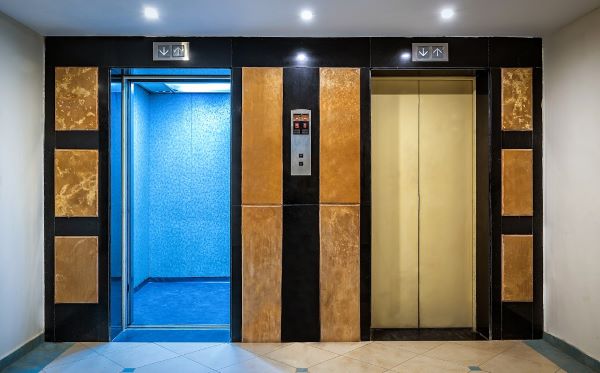
Durability is a key consideration when investing in elevator technology, and traction elevators excel in this aspect. Engineered with robust materials and advanced engineering principles, these elevators boast a long service life, minimizing maintenance requirements and downtime. From the heavy-duty traction ropes to the sturdy steel framework, every component is built to withstand years of continuous operation. This longevity not only ensures a reliable transportation solution for building occupants but also translates into long-term cost savings for building owners.
Selecting the right elevator manufacturer is crucial for ensuring safety, reliability, and efficiency in vertical transportation systems. Delfar is a leading global provider of elevator solutions renowned for its cutting-edge technology, commitment to quality, and comprehensive range of products and services.
Delfar Elevator is at the forefront of elevator technology, continuously innovating to improve safety, efficiency, and user experience. Their elevators are equipped with state-of-the-art features such as regenerative drives, destination control systems, and IoT connectivity, enhancing performance while reducing energy consumption and environmental impact. By investing in Delfar's elevators, clients benefit from the latest advancements in vertical transportation technology, ensuring their buildings are equipped with reliable and future-proof elevator systems.
Delfar Elevator offers a comprehensive range of elevator solutions to meet the diverse needs of different buildings and applications. Whether it's residential, commercial, industrial, or specialized projects, Delfar provides customized elevator systems tailored to specific requirements. Our product portfolio includes passenger elevators, freight elevators, panoramic elevators, home elevators, and more, ensuring that clients have access to a wide array of options to suit their project needs.
In conclusion, the cost of installing an elevator in a 2-story building can vary depending on several factors such as elevator type, size, capacity, customization options, and installation requirements. A basic elevator for a 2-story building might start around $20,000. However, costs could be higher for larger or more customized elevators, or if structural modifications are needed. It's best to consult with elevator manufacturers or contractors to get an accurate estimate tailored to your building's specifications and budget constraints.
content is empty!